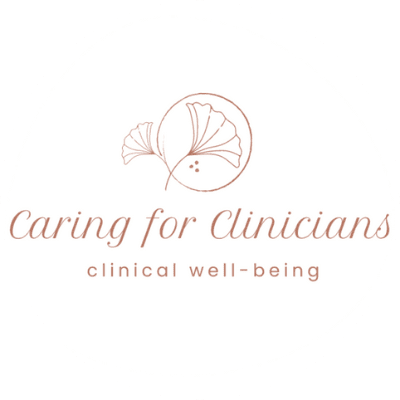The Weight of the World: Personal, Client, and Community Care

Posted Feb 6, 2025
As I sit down to reflect on the ever-shifting landscape of our world today, I can’t help but feel the weight of the political unrest and uncertainty that seems to be permeating every corner of our lives. As clinicians, we are faced with the delicate balance of supporting our clients, while also taking into consideration our own emotional well-being. The interconnectedness of personal, client, and community care has never felt more pronounced—and more challenging.
We are called, in our work, to hold space for people who are navigating their own fears, anxieties, and vulnerabilities. But as the world around us becomes more uncertain, this space we hold is evolving. Many of our clients are not just seeking emotional support—they are seeking safety. Their lives are shaped by political landscapes that often feel oppressive, threatening, and beyond their control. As someone who holds the role of a caregiver, clinician, and social worker, I feel the pull to support them through not only their emotional turmoil but their very real fears for their physical and emotional safety in the community.
But here’s the thing: as I listen and hold that space for others, I am reminded that we, as clinicians, are not immune to the same fears. We are, in many ways, mirrors to the anxieties and stressors of the world we inhabit. The panic and worry that plague our clients often creep into our own hearts, too. In a time of uncertainty, our sense of emotional safety can begin to fray at the edges. It’s not uncommon to feel overwhelmed by the sheer amount of stress we’re exposed to on a daily basis—from media reports to the struggles of our communities—and it’s hard not to carry that weight ourselves.
There is something profound about holding space for another person’s pain. It’s an intimate, vulnerable act. But when we are faced with our own emotional turbulence, the line between caring for others and caring for ourselves can become blurred. The work we do is deeply human—so how do we, as caregivers, navigate the dialectics of personal, client, and community care in this moment?
What Can We Actually Control in a Time of Unrest?
In the spirit of full transparency, I’m considering this because it’s heavy on my heart. I don’t pretend to have all the answers, but I want to share the thoughts that are taking shape. At least one part of this, I believe, lies in recognizing that we are constantly moving along a spectrum. This is not a time for static, one-size-fits-all solutions. It’s a time for fluidity, flexibility, and for acknowledgement that both we and our clients are impacted by forces beyond our control. We must be able to hold space not just for the people who come into our offices, but for our own emotions, our own concerns, and our own sense of vulnerability.
But with that acknowledgment comes the responsibility of asking ourselves: what can we actually control in this moment? We cannot stop the world from turning, and we cannot resolve the political turmoil or societal challenges that impact the lives of our clients. What we can do, however, is offer empathy, presence, and support where it matters most—in the here and now. In doing so, we reaffirm our role as caregivers, even if the world around us feels anything but stable. There certainly are also other options for advocacy and social change strategies as we are seeing, in real-time, how the shifting civil and political landscape may be directly impacting our communities.
As clinicians, we are tasked with making decisions about how we show up, how we support, and how we stay grounded amidst the chaos. In times like these, it’s important to recognize that our decisions about care might look different than they did in the past—and may change again in the future. Our role isn’t to “fix” everything or “solve” every problem, but to stay present with the challenges people face, and to offer compassion where we can.
Navigating Uncertainty: A Call to Presence and Flexibility
In this season of life, we might find ourselves leaning more heavily on our communities for support, engaging in dialogue that fosters understanding, or finding new ways to cope with the increasing emotional and physical stress we are all navigating. We need to check in with ourselves regularly: Are we taking care of ourselves? Are we finding the space to heal and reset, so we can show up fully for our clients and communities?
The heart of what we do as clinicians is grounded in the belief that we can make a difference—even when the larger world feels chaotic. By focusing on what we can actually impact—our presence, our listening, our support, our activism—we remain anchored in the belief that steadfast acts of care can ripple out to create meaningful change. It may feel like a drop in the ocean, but even the smallest ripples can shift the course of the tides.
In the midst of political unrest and uncertainty, we must continue to return to this fundamental truth: our power lies not in controlling the world around us, but in how we show up, in how we care, and in how we move along the dialectics of personal, client, and community care. The work we do in these moments is not just about surviving; it’s about making the space for healing, one breath at a time, and finding peace in the very things we can influence.
Reach Out
Send a Message
I'm thrilled to connect with you and explore how I can support your journey in the mental health field. Whether you're seeking personalized guidance, transformative training, or team empowerment, I'm here to help. Let's embark on a path towards resilience, growth, and excellence. Drop me a message below, and let's start this empowering conversation!
